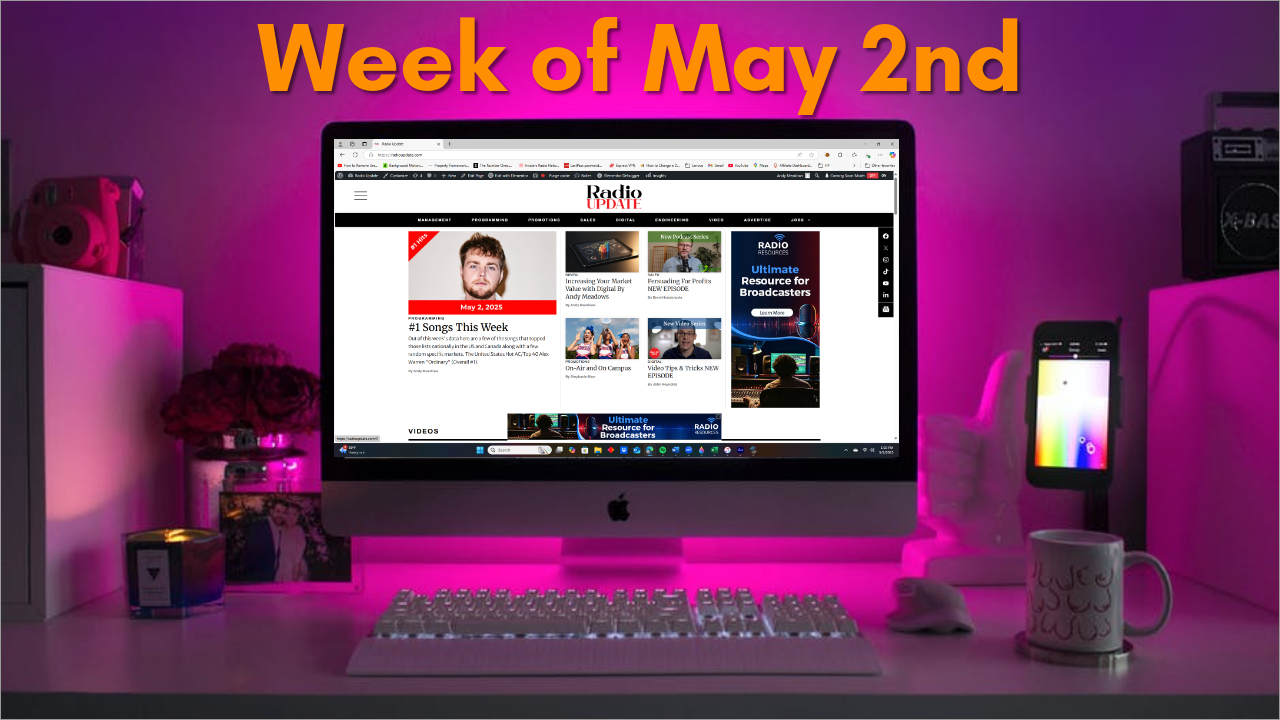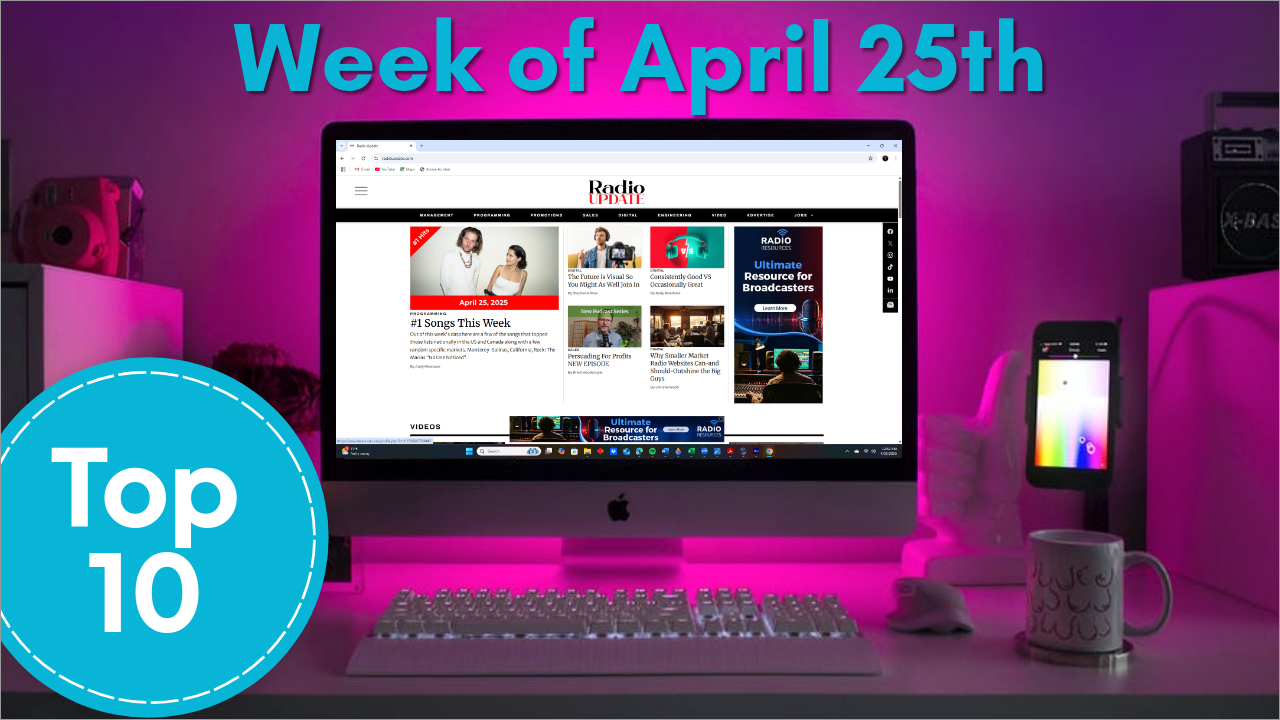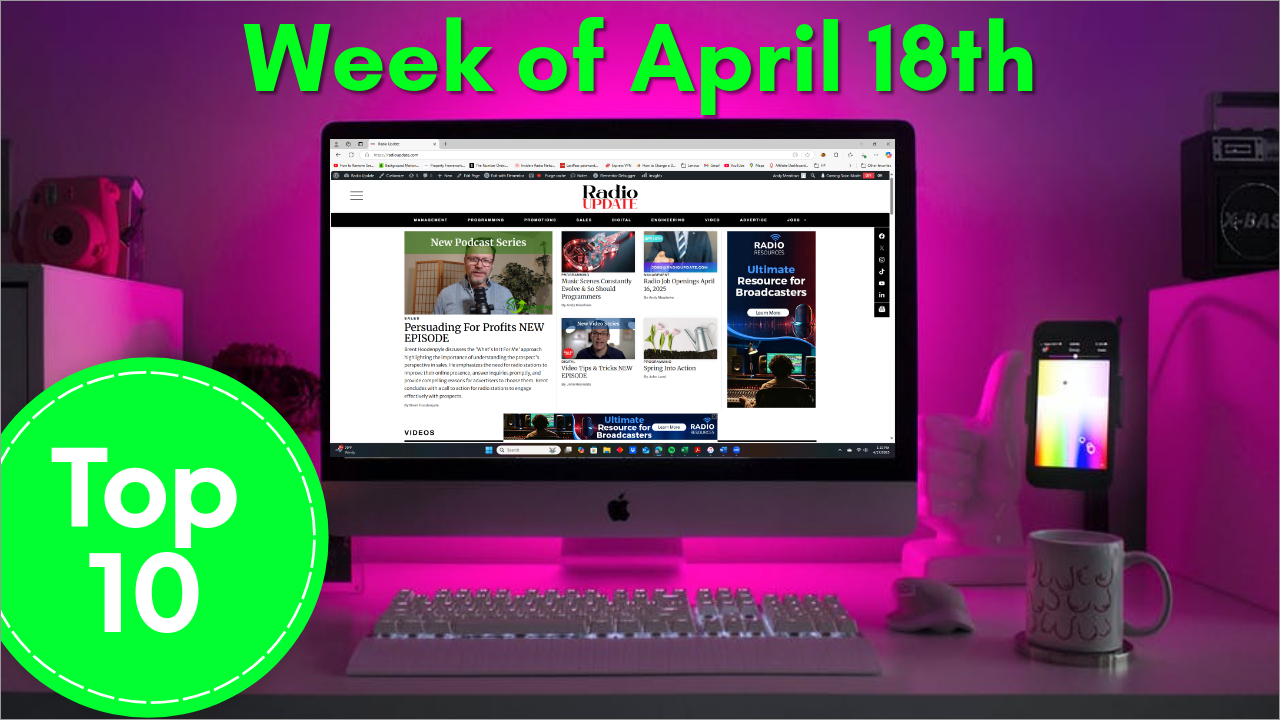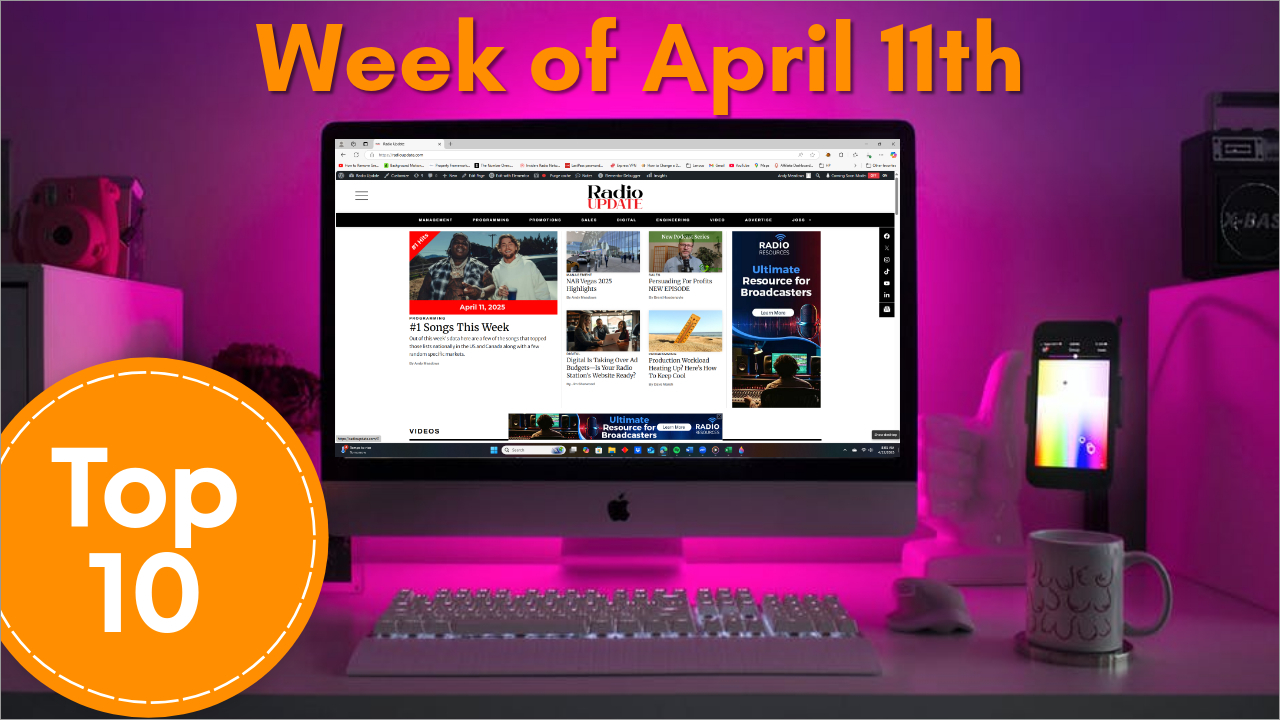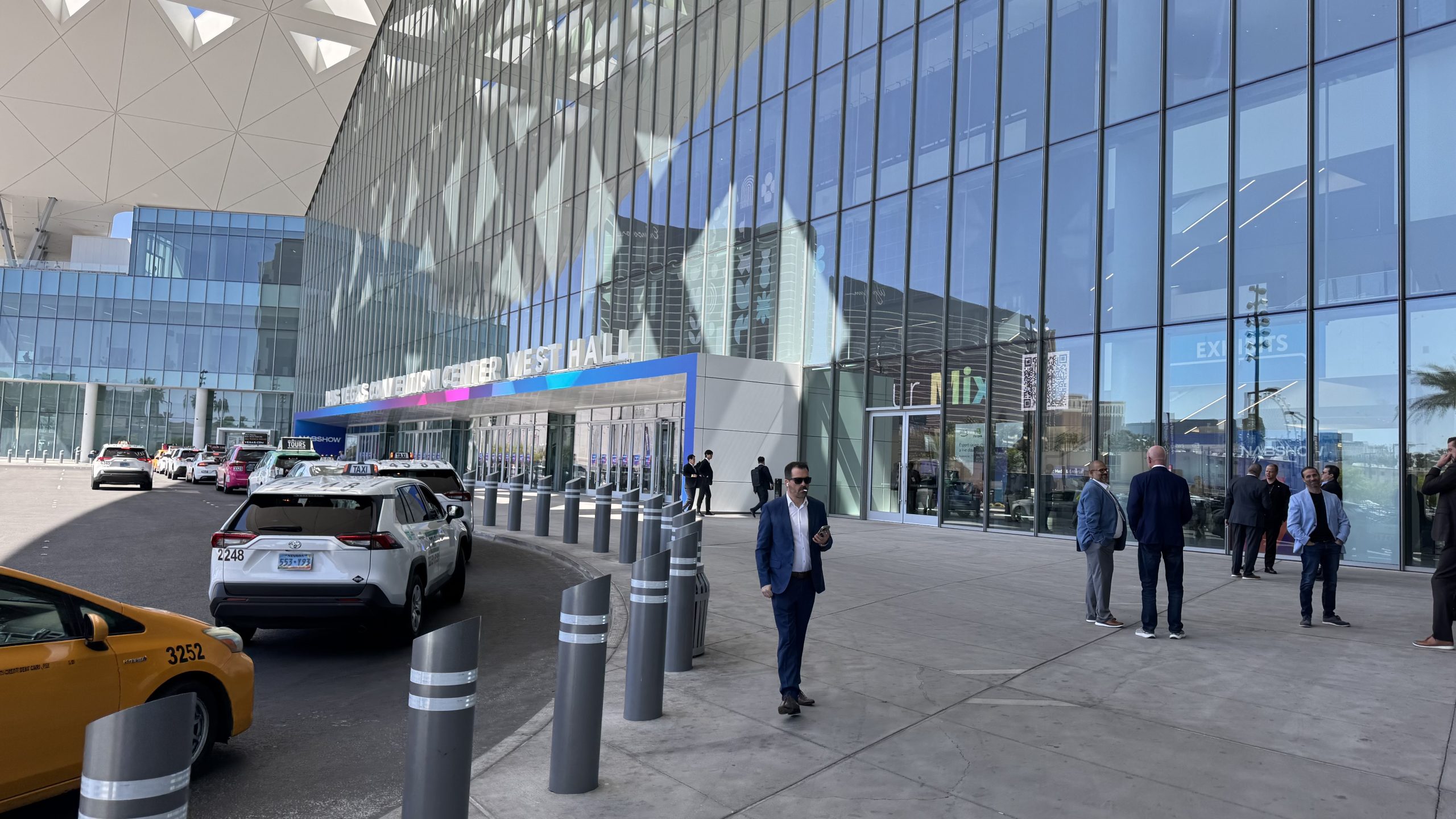As we all know the radio industry isn’t trending in the right direction, especially on the terrestrial side. That’s why so much of my time and energy is spent trying to convince radio to fully embrace digital while we still can. But, recouping the money we’re losing on the terrestrial side digitally is going to take time. So, while I don’t think it’s curtains for our industry yet, I do think 2025 is going to be another challenging year. For all of those reasons radio groups are going to have to continue to get by with smaller staffs. But, I would encourage all groups to compensate those smaller staffs more competitively and for radio employees to become as well-rounded as possible. Because, going forward there is unlikely to be any room left in our industry for specialists. Those who have already survived, and continue to do so, will do all of the following things.
Learn, firsthand, every aspect of the radio business. The lines between departments have been blurring for years and soon they’ll be virtually non-existent. The amount of content required for radio to stay competitive is going to require them to tap into their entire staffs for that content creation. On the flip side, as hard as it is to attract and retain advertisers, essentially everyone is in sales at this point and should be compensated through commissions, finder’s fees and talent fees depending on the role they play in acquiring that station revenue. We all also have to get more tech savvy. We’re already at a point where many groups no longer have chief engineers on-site and, for the most part, they aren’t making any more of them so that trend will continue. That’s part of the reason I partnered with DNav Inc to launch 24/7 Engineering recently, to help fill that void now and in the future. But, that also means that every group, regardless of market size, will need everyone on staff to be a little more technically inclined to handle some of the day to day stuff themselves and so a remote engineer can walk them through things more effectively when necessary.
Embrace every AI tool their companies are willing to pay for and a few inexpensive ones they can afford to add on their own. I’m already seeing lots of instances of this. Production directors paying for their own Eleven Labs accounts, on-air talent paying out of pocket for a Radio Content Pro subscription, radio’s podcasters shelling out for their own RiversideFM account. The more fluent radio staff are in using any and all AI tools to essentially multiply themselves the more likely they’ll spend less time on the beach. So, it makes sense for radio people to invest in some of these things on their own when and where possible.
Step up their home studio game. As staffs shrink and technology continues to make everything smaller, radio groups are going to continue to downsize all of their buildings. So, home studios will play a larger role going forward. Luckily, setting up a professional looking and sounding home studio is incredibly affordable now when we spend a little time and ask the right people what to purchase. I ran through the breakdown of my setup in Episode 35 of Radio Influencers. One caveat I will add though, I do think there’s money to be made renting out radio studios to content creators because there’s a market for that in all-size markets (everyone wants to be a content creator now). But, to get our share of that revenue all of our studios have to be as video-friendly as they are audio-friendly.
What do you think? Is there still room for specialists in radio or are those days over? Comment below or email me at Andy@RadioStationConsultant.com.
Pic designed by wayhomestudios for Envato Elements.




